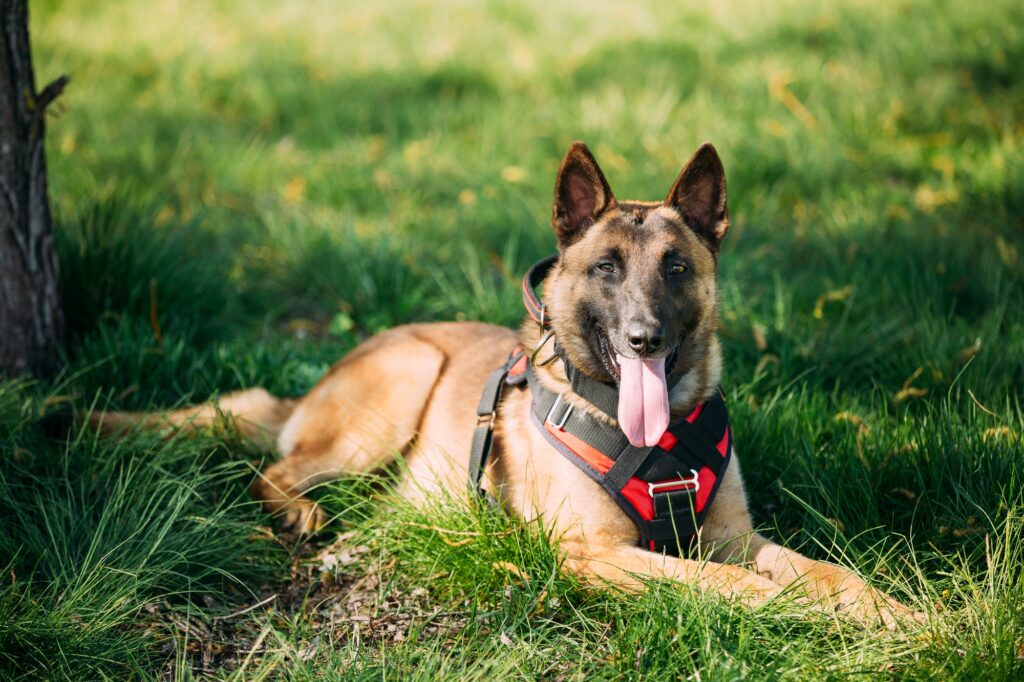German Shepherd
Heena
June 1, 2025

German Shepherds are among the most recognized and versatile dog breeds in the world, especially popular in both the United Kingdom and the United States. Renowned for their intelligence, loyalty, and courage, these dogs are often seen working alongside police, military, and search-and-rescue teams. Yet beyond their working roles, they make excellent family pets when properly trained and cared for.
Breed Overview
German Shepherds are medium-to-large dogs, typically weighing between 50 to 90 pounds. They have a well-balanced, muscular frame and a confident, alert demeanor. Bred originally for herding sheep in Germany, their adaptable nature has made them useful in many other areas.
Breed Colors & Markings
German Shepherds come in a range of colors, though the most common is the classic black and tan combination. Other accepted colors include black and red, sable, solid black, bi-color, and white (though white is not recognized by some kennel clubs). Their double coat, consisting of a dense undercoat and a coarser topcoat, helps protect them from both cold and heat.
Communication and Behavior
German Shepherds are expressive and highly intelligent dogs. They communicate through body language, barking, and even eye contact. In both the UK and USA, many owners train them using positive reinforcement and clicker training, which works well given their desire to please. Early socialization is key to preventing overprotectiveness or aggression towards strangers.
They are known to be excellent watchdogs and often form strong bonds with their family. They thrive on companionship and can develop behavioral issues if left alone for extended periods.
What Do They Eat?
In the UK and USA, German Shepherds are typically fed a high-quality commercial kibble or a raw diet. A balanced diet should include:
- Protein (chicken, beef, lamb, or fish)
- Healthy fats (for coat and energy)
- Carbohydrates (like brown rice or sweet potatoes)
- Essential vitamins and minerals
Puppies should be fed specially-formulated food for large breeds to support joint development. Adult dogs usually eat 2 meals per day, while puppies may need 3-4 smaller meals.
What to Expect When Caring for a German Shepherd
Caring for a German Shepherd requires time, dedication, and knowledge of their specific needs.
Health
German Shepherds are generally healthy but are prone to several hereditary conditions:
- Hip and elbow dysplasia
- Degenerative myelopathy
- Allergies
- Bloat (gastric torsion)
Regular vet checkups, joint supplements, and maintaining a healthy weight can reduce the risk of these issues. In the UK and USA, reputable breeders will provide health clearances for breeding dogs.
Grooming
This breed sheds heavily year-round and “blows” their coat twice a year, usually in spring and autumn. Weekly brushing is essential, and during heavy shedding seasons, daily grooming may be needed. A de-shedding tool helps manage their thick coat. Bathing should be done every few months or when they get particularly dirty.
Exercise
German Shepherds are highly energetic and need at least 1–2 hours of daily exercise. This can include:
- Walks or jogs
- Fetch or tug-of-war
- Agility or obedience training
- Mental stimulation games
Without enough exercise, they can become destructive or anxious. Both urban and rural families in the USA and UK often enjoy taking their German Shepherds to parks or dog-friendly trails.
Training
Training is essential for this intelligent breed. German Shepherds excel in obedience, agility, and advanced work like scent detection or therapy. Training should start early and remain consistent. They respond best to positive methods and need a confident owner to establish boundaries. In the UK, many owners take their dogs to local training clubs, while in the USA, private trainers or AKC Canine Good Citizen programs are popular.
Nutrition
Nutrition plays a critical role in a German Shepherd’s overall health. Puppies, adults, and seniors have different dietary needs. A German Shepherd’s diet should be rich in protein to maintain muscle and energy. Avoid foods with fillers or artificial ingredients. Joint-support supplements like glucosamine are also beneficial, especially in older dogs.
In both the UK and USA, premium dog food brands like Royal Canin, Orijen, and Hill’s Science Diet offer breed-specific formulas that cater to the German Shepherd’s unique needs.
Final Thoughts
Whether you’re in a flat in London or a suburban home in Texas, a German Shepherd can be an incredible companion if their physical and mental needs are met. Loyal, intelligent, and courageous, they thrive in homes that offer structure, love, and plenty of activity. By understanding their needs in terms of nutrition, exercise, and socialization, owners in the UK and USA can enjoy the lifelong companionship of this remarkable breed.
